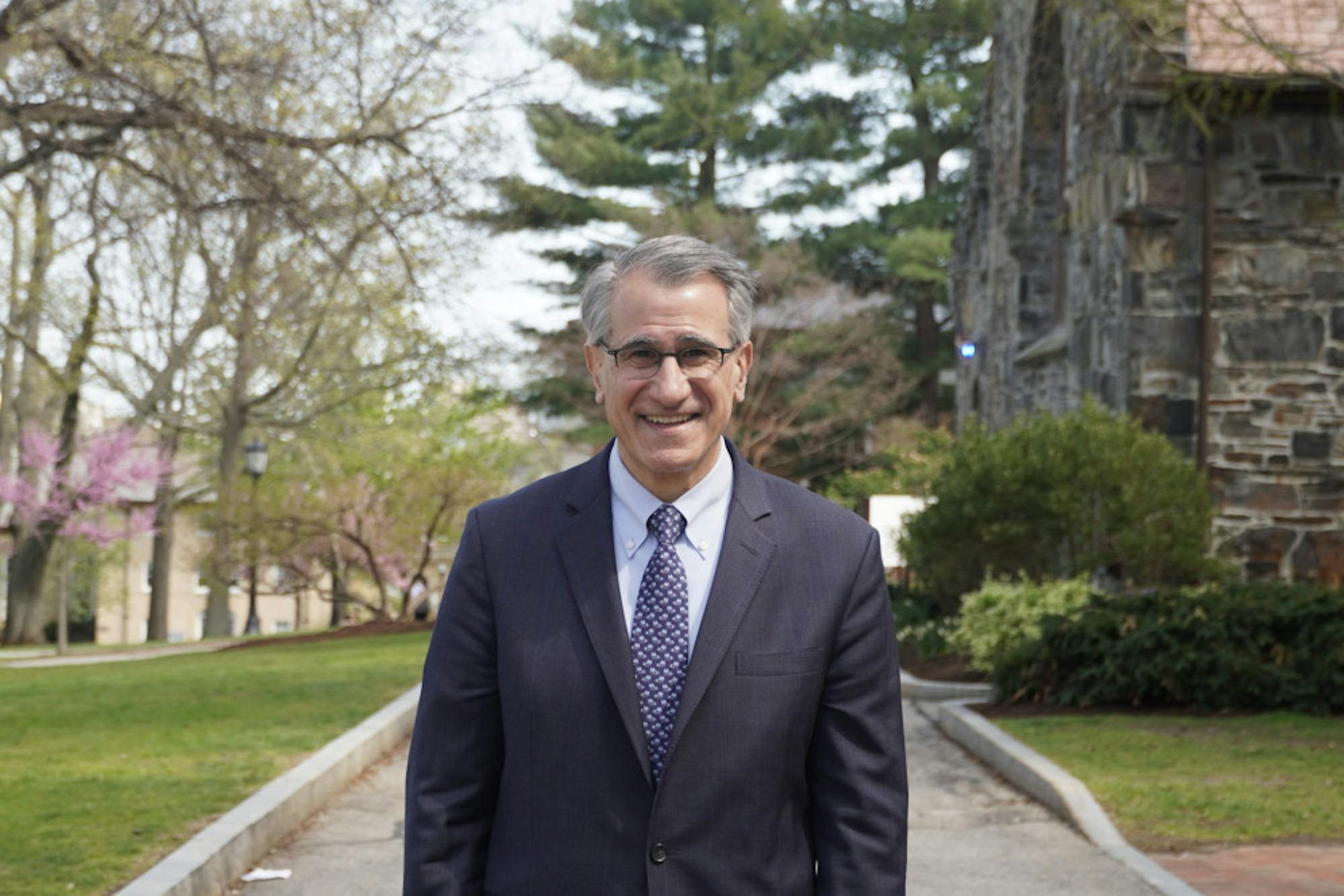The Tufts Community Union Senate hosted “Navigating Student Life at Tufts,” a town hall event, on Oct. 7 in the Alumnae Lounge. The question and answer event was an opportunity for any student to meet with members of the Tufts administration, including University President Anthony Monaco, Director of Dining and Business Services Patti Klos, Director of Residential Life and Learning Christina Alch and Dean of the Jonathan M. Tisch College of Civic Life Dayna Cunningham.
TCU Senate Vice President Arielle Galinsky, a junior, and sophomore Joel Omolade, chair of the TCU outreach committee, worked to put the event together.
“One of the main priorities of the TCU Senate this year is to provide students with the opportunity to vocalize their concerns to the Senate body,” Galinsky wrote in an email to the Daily, noting the Senate’s commitment to bolstering administrative transparency. “We can actively pursue initiatives in line with students’ needs, as well as to build a stronger bridge between the student body and Tufts administration more broadly.”
This event is the first of an eight-part town hall series this year, four of which will occur during the fall semester with the other four taking place in the spring.
“We hope these events serve as an opportunity for students to express areas of concern that they want to see improved, as well as solidify a clear line of communication between the TCU, TCU Senate, and the Tufts administration,” Galinsky wrote.
Questions from the student body to Monaco included inquiries about the completion date of the MBTA Green Line Extension, which is expected to open before the year’s end.
Asked how the GLX will impact the student body, Monaco said, “It’s going to do a lot for our campus; it’s going to connect our campuses for the first time directly, particularly the [School of the Museum of Fine Arts].”
“Public transport is environmentally more friendly, and we want to get as many people using the T [as possible],” Monaco said. “Students will benefit from having better access to job opportunities and internships [because] they can fit them in their schedule more approachably.”
Monaco also commented on recent incidents of antisemitism.
“It’s not only racism that we’re fighting against [but] also antisemitism in all its forms, the blatant neofascism, antisemitism, right down to the more [subtle] forms,” Monaco said. “We want to educate our community on why this is hurtful to our Jewish students and why it’s discriminatory and what we need to do to battle against it.”
On the subject of the presidential search, Monaco assured the audience that the hiring process is on schedule.
“The chairman of the Board of Trustees told me that they're down to a couple candidates and they're going to figure that out and then bring it, hopefully, to an announcement by the end of the calendar year,” Monaco said.
Answering questions about sustainability initiatives on campus, Klos said, “What will we do in dining starts with careful planning of how much to have, and really thinking about the balance between advertising to [students] what the favorite thing is going to be offered in a dining center with planning to run out of something because it was sourced locally.”
Klos discussed how food preparation is staggered throughout the day to optimize its freshness and prevent excess waste.
“[We are] really thinking about how that food is produced; doing it in batches, trying to make fresh food throughout the day, and really thinking about how much we should have left at the end of each meal period,” Klos said. “We work hard to reduce the amount of waste that's left at the end of the day, and in fact, many items that may have been prepared, but not often for service, can be safely saved, chilled [and] reheated the next day.”
When asked about sustainability efforts and making a change at Tufts, Cunningham said, “Tisch [College] offers [students] a lot of different tools and methods and experiences that help put [students’] hands on experiences of governance, whether that’s through community processes [or] internships. … Tufts students actually see themselves as civic actors and civic leaders.”
Referencing governmental solutions to global problems, Cunningham suggested that addressing the COVID-19 pandemic has prepared students to tackle future crises.
“[An adaptation to climate change] means the majority of people in the country will be poorer [and] more at risk,” Cunningham said. “So what does that mean for you all? I actually think that’s an opportunity. … We need the tools, we need the skills, we need the habits, we need the empathy and we need to develop that now because what else are we going to do? All we have is ourselves.”






